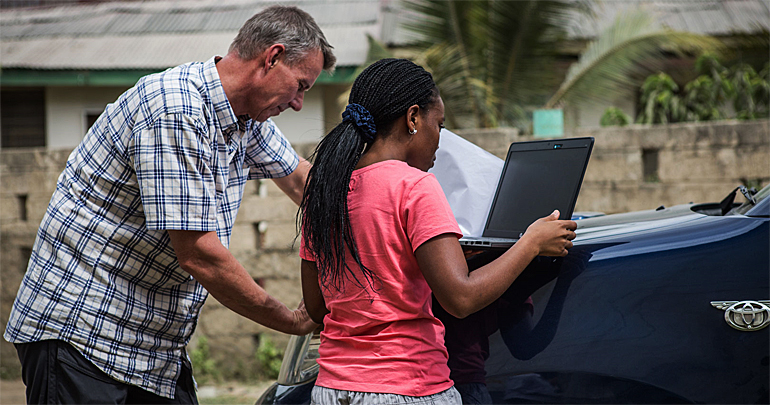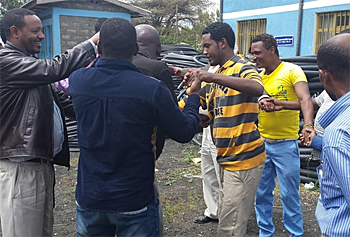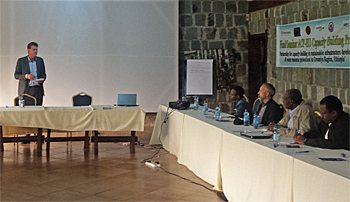VEI concludes management project resulting in 50 percent more revenue for water utilities in Oromia, Ethiopia
 Vitens Evides International (VEI) celebrated the successful implementation of an EU funded capacity building project in the Oromia region (Ethiopia) with a closing seminar on 7 July 2016.
Vitens Evides International (VEI) celebrated the successful implementation of an EU funded capacity building project in the Oromia region (Ethiopia) with a closing seminar on 7 July 2016.
As a result of the four-year project the revenue of the beneficiary water utilities in Adama and Bishoftu has increased by more than 50 percent. Non-Revenue Water is reduced by more than 7 percent, while collection efficiencies rose to 99 percent and water supply coverage has increased significantly.
 Management training of the staff of the water utilities at Bishoftu, Ethiopia.
Management training of the staff of the water utilities at Bishoftu, Ethiopia.
Pro-poor focal persons
For both utilities a business plan and a financial model and management information system have been developed for both water utilities.
Part of the business plans, was the assignment of two pro-poor focal persons. These persons have worked out pro-poor investment policies and strategies in close consultation with the GIS experts of the two towns.
A VEI HRM expert has given training to a total of 25 management staff from Adama and Bishoftu, learning about leadership, communication and team building.
A new computer network including server was set up, and software for customer service, billing, collection and financial system was introduced. An intensive workshop and pilot work on the GIS was made with both Adama and Bishoftu staff.
 Closing seminar looking back on the achievements of the project and the importance of capacitiy building in general.
Closing seminar looking back on the achievements of the project and the importance of capacitiy building in general.
Importance of capacity building
On opening of the seminar, Ethiopian Ministry of water irrigation and electricity, Mr. Asmamaw, mentioned that capacity building is crucial for Ethiopian water utilities in order to manage their infrastructure in a sustainable way. He also stressed that water resources must be protected from any contamination and appreciated the consortium partners for the successful implementation of the project.
Pollution hotspots
In the afternoon, Mrs. Andrea Swenne of Dutch water authority Vallei & Veluwe, showed the results of capacity building in the field of water resources monitoring.
Together with Oromia Water, energy and minerals bureau, a water quality monitoring network for the upper Awash River was set up.
The result of two years of monitoring showed many hotspots of water pollution due to industrial and human discharges. The seriousness of the pollution have led to the formation of an institutional platform consisting of regional and national authorities that are currently developing an action plan to reduce discharges.
Replication by other water utilities
The best practices of the capacity building project in Adama and Bishoftu are now being replicated at more than 27 utilities in the Oromia region.
The project ‘Partnership for Capacity Building for Sustainable infrastructure development and Water resource protection in Oromia region, Ethiopia’ was funded by the EU Water Facility Fund.
This news item was originally published on the website of Vitens-Evides International.
Read also on this website
● Stockholm World Water Week: Towards sustainable water services, 25 August 2015
● VEI extends water operator partnership with Lilongwe water board, Malawi, 17 July 2015
● DWASA and Vitens Evides International intensify cooperation on water supply and urban dredging in Bangladesh, 15 February 2015
● World Bank wants Vitens Evides International to extend partnership Mombasa water utility, Kenya, 28 October 2014
More information
Vitens Evides International
Utrecht, the Netherlands
+31 88 884 7991
www.vitensevidesinternational.com



